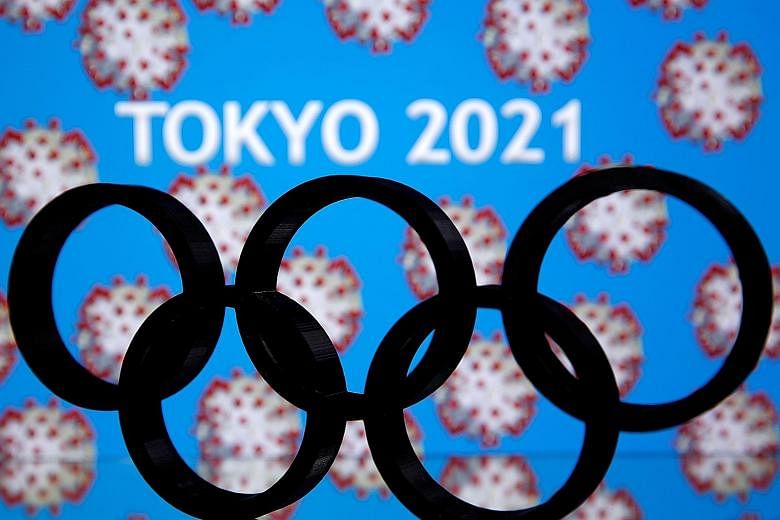TOKYO • The organisers of the Tokyo 2020 Olympics said yesterday they were not aware of detailed spending allocations for the US$800 million (S$1.14 billion) committed to next year's rescheduled Games by the International Olympic Committee (IOC).
Such knowledge is critical as the total cost of the Games, delayed by a year because of the coronavirus pandemic, remains unknown, with Japan's government and the Tokyo 2020 organisers still assessing how to share the costs.
"We, in the organising committee ourselves, have no idea about how this money will be spent," Toshiro Muto, the chief executive of the organising committee, told an online briefing. "As to the breakdown...I also understand that the IOC has stated it is too soon and too early to tell."
On Thursday, IOC president Thomas Bach said the IOC expected to bear costs of up to US$800 million.
Of this, US$650 million will go for organisation of the Games, set to start on July 23 next year, and US$150 million to support international federations and national Olympic committees.
Muto said he had not seen a breakdown of the IOC's costs and declined to say how much the delay was likely to cost the Games organising committee and the Japanese government.
"As to why it is US$650 million? I am afraid you will have to ask the IOC," he added.
New dates have been set since the IOC - which has approximately US$1 billion in reserves - and Japan decided jointly in March to postpone the Olympics. But little else has been decided, leaving open issues such as availability of venues, athlete safety and a swathe of broadcast and sponsorship contracts.
Changes to the original plan could be expected so as to save costs and make the Games safe for athletes, Muto said, without providing details. But if the pandemic threat persists, incorporating social distancing norms into the arrangements promises to be a headache, to say nothing of other precautions.
"One of the bigger questions is, can we actually hold the Olympic and Paralympic competitions in the same way we have always held them?" Muto added.
For example, Japanese media have said the duration of the torch relay would be reduced from the original 121 days to save costs.
The events would have to retain the essentials, Muto said, adding: "Thomas Bach said yesterday that it is time for all of us to review what are the essential things for these Games. What are the must-have items?"
According to the latest budget, the Games were due to cost US$12.6 billion, shared between the organising committee, the government of Japan and Tokyo city.
Bach noted that the first priority now was to secure the Olympic venues, including the athletes' village and the media centres, for another year.
He declined to speculate on a possible new delay to the Games if the coronavirus is still a major concern next year. "We are one year and two months away from the opening of these postponed Olympic Games," he said. "We should not fuel any speculation on any future development."
REUTERS, AGENCE FRANCE-PRESSE

